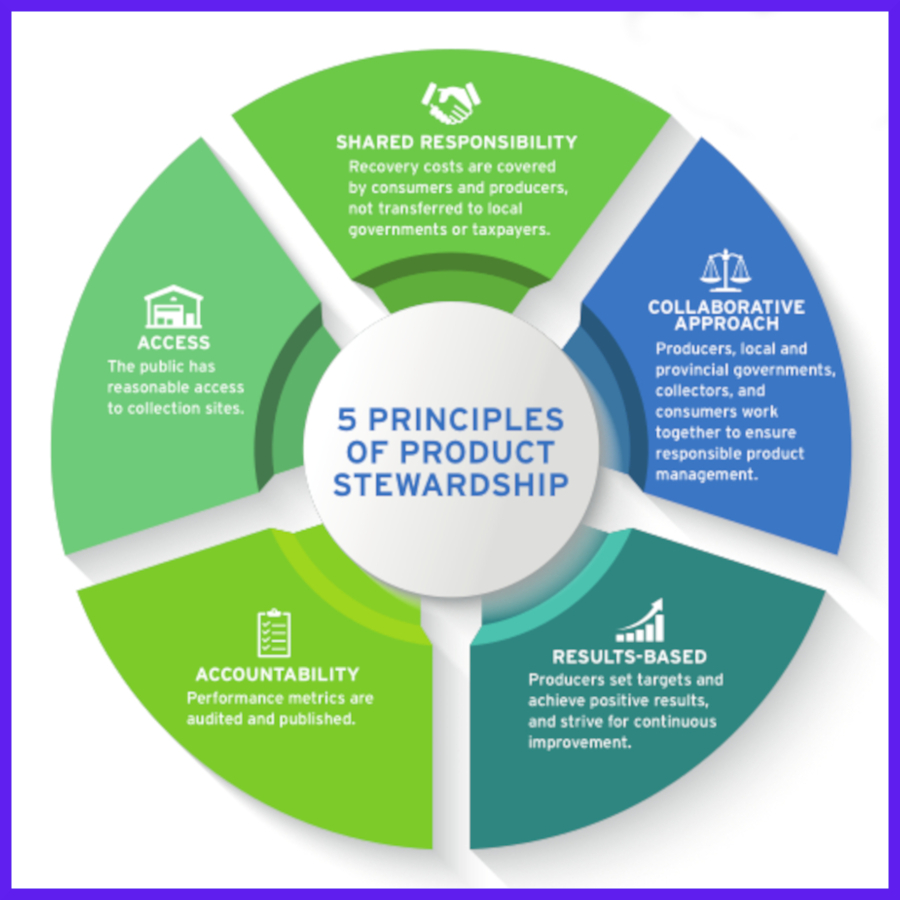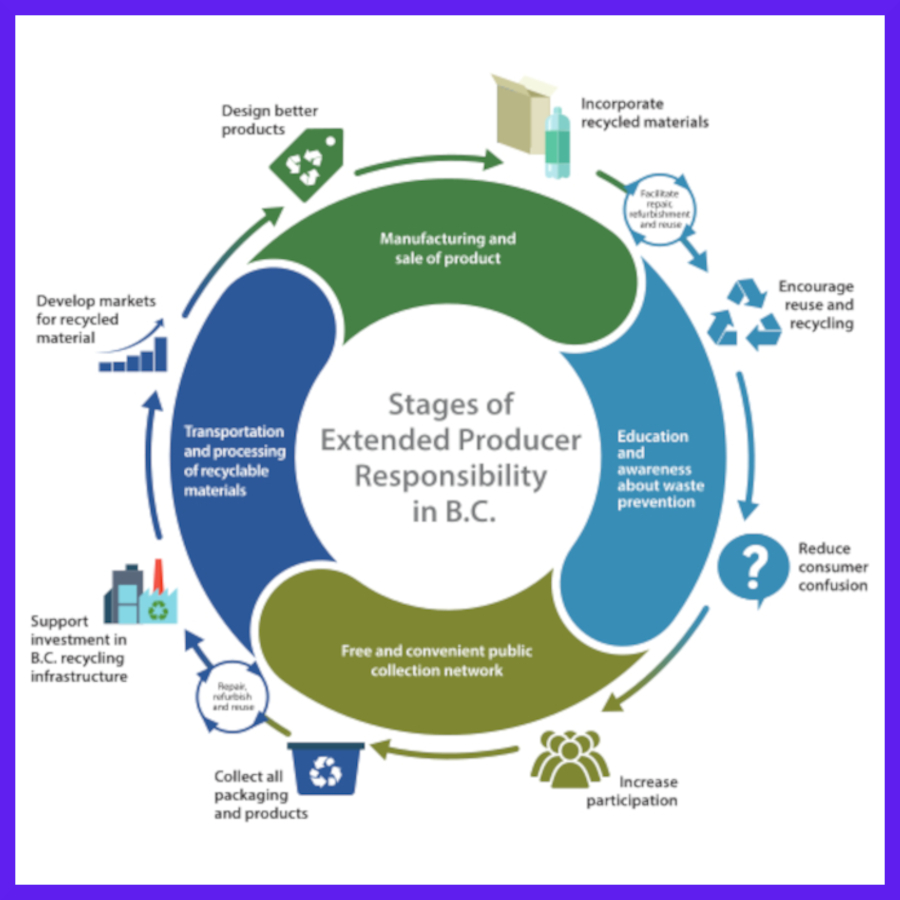EV Batteries
Electric Vehicle and hybrid vehicle batteries as well as a few types of other batteries not currently covered.
In British Columbia, Extended Producer Responsibility (EPR) is an environmental policy approach in which the producer’s responsibility for reducing environmental impact and managing the product is extended across the whole lifecycle of the product, from selection of materials and design to its end-of-life (as defined by the BC Ministry of Environment and Parks).
To meet the requirements of EPR, producers from a sector often join together and form non-profit organizations called stewardship agencies or producer responsibility organizations. These organizations then take responsibility for the end-of-life management of certain materials as well as the reporting and consultation aspects of EPR.
Many of BC’s existing stewardship agencies have partnered to form an informal alliance called the Stewardship Agencies of BC (SABC).

RCBC held a critical role in the development of the policies that formed BC’s EPR program beginning in 2004. Since then, RCBC has continued to collect and share information that informs decisions by both the government and stewardship agencies on the future direction of EPR.
The Recycling Regulation, under the authority of the Environmental Management Act, sets out the requirements for BC’s EPR program. BC already has the most extensive list of materials covered by EPR, and the Province continues to look for ways to prevent waste.
BC continues to build the EPR program through actions such as adding more products to the Recycling Regulation and conducting research on how industrial companies, commercial enterprises, and institutions (such as hospitals and schools) can divert packaging and paper from the landfill.
The Province has laid out its next priorities in the Extended Producer Responsibility Five-Year Action Plan (2021-26).

The five-year action plan calls for the following categories of materials to be added to EPR programs. BC residents will then be able to drop them off for free at participating locations.